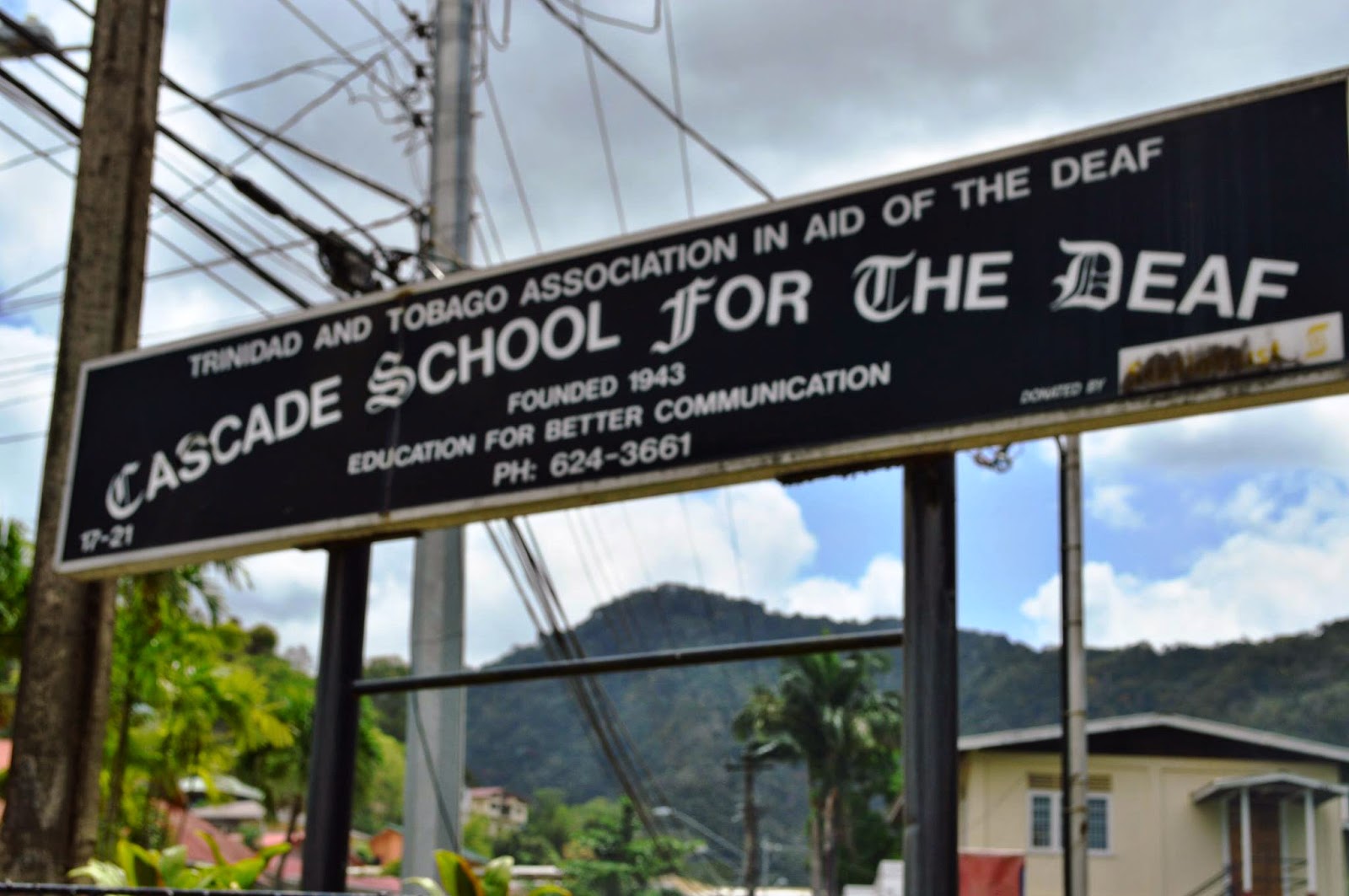On Tuesday 21st April Giselle Permell and I got to talk to the Principal of the school Ms Monsegue and sit in on a class and interact with some of the students. Firstly I must say thanks to Giselle she did a wonderful job with the pictures as you will see for yourself, while we were unable to take pictures of the students as it is against school policy she was able to capture their beautiful learning environment and also thanks to Ms Monsegue, her staff and students for the warm welcome.
The session was very informative and I learned a lot about the day to day activities of the school. The school was established in 1943. and was initially overseen by the Trinidad and Tobago Association for the Hearing Impaired but it eventually became a government assisted public primary school but the property is still owned by the Association and the dorm and dorm staff is run by them. The school currently has thirty-three students, twenty-one of which attend the Cascade school for the Deaf, seven attend the Belmont Primary School and five attend the Good Shepperd Anglican Primary School, these students are accompanied and taught by staff from the Cascade School for the Deaf. The school has Seventeen members of staff all of whom had no special education training before they were placed at the school. I was shocked because I could not understand how a teacher could be placed at a school to teach children that they could not communicate with. Ms Monsegue explained that while the situation was not ideal, new teachers were place with an experienced teacher until they were able to communicate in sign and teach a class on their own. The School is listed as a primary school but students age range from 4 years to 17 yrs which seemed to be another issue. The students are split into three groups; infants, juniors and seniors and the classes are small, which in my view benefits the students because they are able to get more individual attention.
Ms Mosegue the acting principal did a five weeks of teacher training at the school after she graduated and has been with the school ever since. She has been a teacher since 1996 and acting principal since 2013. when asked why she had decided to teach deaf children she responded by saying "she wanted to make a difference and felt that she could help the deaf" she also said that one of the biggest challenges that she has face thus far is teaching deaf children language and reading. Because of the way sign language is structured and visual it is difficult for deaf children to grasp English language on paper. She also believes that a lot more needs to be done to help deaf students achieve all that they can achieve. Ms Monsegue also spoke about the role that parents played in helping their deaf child to learn to communicate from as early as possible, she said ideally from three months old. One teacher Miss Smith suggested that preschools for deaf children need to be established.
The school covers the usual syllabus that is required for a primary school except that they are not preparing for Sea exams. Some students spend two years at the school and then they are placed in another primary school to continue their studies. It is felt that this will help them to become more social and allow them to interact with hearing children. The children also learn different crafts and computer skills, dancing and go on field trips. The students who do not get filtered into a primary school eventually move on to the National Centre for Persons with Disabilities where they learn skills that will prepare them for the world of work.
Due to the distance that some students have to travel to get to school everyday, the school has live in facilities. The dorm has fifteen members of staff most of whom has been there for over ten years. Currently sixteen children reside in the dorm, they recieve all meals and snacks and have 24 hours supervision. The dorm environment is very nice and clean, and the staff was very polite and friendly. Children are taken home by their parents for the weekend.
The experience was a good one for me and I would recommend that others visit and also volunteer. The children are bright, helpful and very friendly and I was able to use the signs that i having been learning, i was even given a name in sign while i was there. The school has a sign language for parents of deaf children and also for members of the public who are interested in learning to sign. it was really an enjoyable experience and also a sad one because a lot still needs to be done to ensure that deaf children achieve their full potential.









This comment has been removed by the author.
ReplyDeleteWow! Very informative and moving. I've been looking for a worthy association to provide voluntary services to and, seeing that I have had experience screening for hearing impairment in primary school children for over five years in the ministry of Health, I am more intrigued and inspired than ever. How do I go about offering my volunteerism, do I call the school directly?
ReplyDeleteI commend the school's staff and administration for the pride it takes in providing a clean, attractive environment for learning for these children. So many times we in society treat persons with disabilities as subhuman. I also want to commend all stakeholders for not just being an institution but,obviously, a family.
Well done Kizie and Giselle!